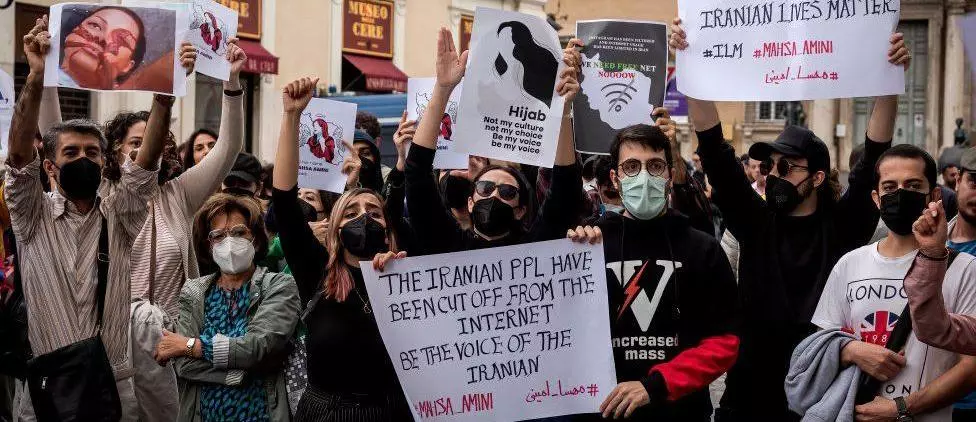
Iran revives police patrols to enforce veil regulations for women
text_fieldsTehran: Iranian authorities have reinstated police patrols to address the growing number of women who are defying the strict dress code by leaving their hair uncovered in public.
Starting Sunday, the approach of police patrols is being reintroduced, as announced by police spokesman Saeed Montazer Almehdi. The police will conduct car and foot patrols to issue warnings, take legal action, and refer those who defy police orders to the judiciary, reported AFP. Online images have circulated, purportedly showing female police officers dressed in all-black chadors, reprimanding and arresting women whose heads were uncovered. The authenticity of these images could not be independently verified by the outlet.
The move comes 10 months after the death of Mahsa Amini, a 22-year-old Iranian-Kurd, sparked nationwide protests and led to the withdrawal of morality police from the streets. In the absence of active patrols, more women began to flout the dress code.
Mahsa Amini was arrested by morality police in September last year for allegedly violating the dress code, which mandates the coverage of women's heads and necks in public. While the morality police had ceased their activities, the authorities implemented alternative measures to enforce the dress code, including closing down businesses with non-compliant staff and installing surveillance cameras in public areas to identify violators.
The dress code has been in place since the aftermath of the 1979 Islamic revolution in Iran. Violators can face fines or imprisonment of up to two months. Recently, four women reportedly received additional punishments, including mandatory attendance at psychological classes and driving bans, as reported by the reformist newspaper Shargh.
During the protests following Mahsa Amini's death, which the Iranian authorities labeled as foreign-instigated "riots," thousands of Iranians were arrested, and hundreds, including security personnel, lost their lives.
While Iran's conservative leadership staunchly supports the dress code, there is internal debate on the issue.
In May, the judiciary and the government proposed a bill titled "Support for the Culture of Hijab and Chastity," which suggests increased fines for individuals who remove their veils in public or on the internet, but eliminates the threat of imprisonment. This proposal has generated heated discussion within the country.
The response to the protest movement has led the United States, Britain, and the European Union to impose multiple rounds of sanctions on Iran.























